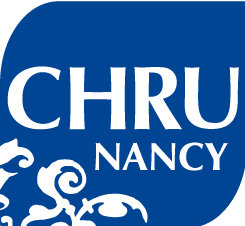The
ANSM (French Agency for Medicine and Health Products Security) was established by the
law of December 29th 2011. It deals with the reinforcement of sanitary security for medicine and health products.
The
ANSM"L’Agence Nationale de Sécurité du Médicament et des produits de santé (ANSM) a été créée par la loi du 29 décembre 2011 relative au renforcement de la sécurité sanitaire des médicaments et des produits de santé. L’ANSM s’est substituée le 1er mai 2012 à l’Agence Française de Sécurité SAnitaire du médicament et des Produits de Santé (Afssaps) dont elle a repris les missions, droits et obligations." On dit que c'est "l'autorité compétente" dans le cadre des recherches biomédicales.
L'un des rôles principal de l'ANSM est de "garantir la sécurité des produits de santé tout au long de leur cycle de vie". Dans la recherche clinique, "l’Agence évalue la sécurité et la qualité des produits utilisés au cours de la recherche, avec l’objectif de s’assurer que la sécurité des personnes se prêtant à la recherche biomédicale est garantie." Pour en savoir + More replaced on May 1
st 2012 the previous Afssaps (French Agency for Sanitary Security for Medicine and Health products). It took over its missions, rights and obligations. It is referred as “competent authority” in the filed of biomedical research.
One of the main purpose of the
ANSM"L’Agence Nationale de Sécurité du Médicament et des produits de santé (ANSM) a été créée par la loi du 29 décembre 2011 relative au renforcement de la sécurité sanitaire des médicaments et des produits de santé. L’ANSM s’est substituée le 1er mai 2012 à l’Agence Française de Sécurité SAnitaire du médicament et des Produits de Santé (Afssaps) dont elle a repris les missions, droits et obligations." On dit que c'est "l'autorité compétente" dans le cadre des recherches biomédicales.
L'un des rôles principal de l'ANSM est de "garantir la sécurité des produits de santé tout au long de leur cycle de vie". Dans la recherche clinique, "l’Agence évalue la sécurité et la qualité des produits utilisés au cours de la recherche, avec l’objectif de s’assurer que la sécurité des personnes se prêtant à la recherche biomédicale est garantie." Pour en savoir + More is to “guarantee the security of heath products over their entire life-cycle”. In clinical research, the “Agency assesses the security and the quality of the products used throughout the investigation. It aims at guaranteeing the safety of subjects who take part in biomedical research”.
For more information . . .
The
antennaThe antenna is the device that emits radiofrequency impulses (for the creation of the signal) and/or receive the signal (for the image production). We mostly use a dedicated antenna according to the studied area (head antenna, knee antenna, etc.). More is the device that emits radiofrequency impulses (for the creation of the signal) and/or receive the signal (for the image production). We mostly use a dedicated
antennaThe antenna is the device that emits radiofrequency impulses (for the creation of the signal) and/or receive the signal (for the image production). We mostly use a dedicated antenna according to the studied area (head antenna, knee antenna, etc.). More according to the studied area (head
antennaThe antenna is the device that emits radiofrequency impulses (for the creation of the signal) and/or receive the signal (for the image production). We mostly use a dedicated antenna according to the studied area (head antenna, knee antenna, etc.). More, knee
antennaThe antenna is the device that emits radiofrequency impulses (for the creation of the signal) and/or receive the signal (for the image production). We mostly use a dedicated antenna according to the studied area (head antenna, knee antenna, etc.). More, etc.).
The CNILLa CNIL, ou Commission Nationale de l’Informatique et des Libertés, est une autorité administrative indépendante française. Elle agit selon la loi « Informatique et Libertés ». Elle veille à ce que l’informatique : • soit au service du citoyen
• ne porte atteinte ni à l’identité humaine, ni aux droits de l’homme, ni à la vie privée, ni aux libertés individuelles ou publiques.
Elle est essentielle dans la recherche clinique puisque ce type de recherche nécessite la collecte de multiples données à caractère personnel voire à caractère sensible (données médicales, etc.). More (French Commission for Data protection and Liberties) is a French, independent, and administrative authority.
It acts according to the law “loi « Informatique et Libertés »”
It ensures that data processing:
- Serve citizens
- Respect human identity, human rights, private life, individual and public liberties.
The CNILLa CNIL, ou Commission Nationale de l’Informatique et des Libertés, est une autorité administrative indépendante française. Elle agit selon la loi « Informatique et Libertés ». Elle veille à ce que l’informatique : • soit au service du citoyen
• ne porte atteinte ni à l’identité humaine, ni aux droits de l’homme, ni à la vie privée, ni aux libertés individuelles ou publiques.
Elle est essentielle dans la recherche clinique puisque ce type de recherche nécessite la collecte de multiples données à caractère personnel voire à caractère sensible (données médicales, etc.). More is essential in clinical research as this type of research needs to collect a lot of personal data. These data as sometimes sensitive data (medical data, etc.).
A
Consent formA Consent form is a signed document that confirms that a volunteer, “healthy” or sick, agrees to participate in a specific clinical study. In order to make the consent valid, the person who signs the document must do it in a free and informed way. It means they are not compelled to sign it (in any way), and must have completely understood what is going to happen during the study they take part in, and how it is conducted. Thus, before the exam, a doctor systematically delivers complete information on the investigation purposes, on the way it is conducted, and he answers all the questions that may have the future subject. For some investigations (called non-interventional), consent is not required. Then we talk about a non-opposition, i.e, a tacit agreement. It means that the subject who participates in a given investigation agrees that their data are used, for instance. However, they can make an opposition to their doctor. More is a signed document that confirms that a volunteer, “healthy” or sick, agrees to participate in a specific clinical study.
In order to make the consent valid, the person who signs the document must do it in a free and informed way. It means they are not compelled to sign it (in any way), and must have completely understood what is going to happen during the study they take part in, and how it is conducted. Thus, before the exam, a doctor systematically delivers complete information on the investigation purposes, on the way it is conducted, and he answers all the questions that may have the future subject.
For some investigations (called non-interventional), consent is not required. Then we talk about a non-opposition,
i.e, a tacit agreement. It means that the subject who participates in a given investigation agrees that their data are used, for instance. However, they can make an opposition to their doctor.
The
CPPThe CPP (Ethical Research Comittees) now stands for the CCPPRB (Consultative Ethical Research Comittees in biomedical research). They co-decide with the ANSM (French Agency for medicine security) all the authorizations in biomedical investigations. Those committees were instituted by the law of August, 9 2014 and are certified by the Ministry of Health. Their composition guarantees their independence and the variety of expertise they have in medical field (moral, social, psychological and legal). Their mission is to:
• Give advice on the conditions for the validation of investigations
• Protect subjects who participate in studies.
• Verify the suitability, the exhaustiveness, and the intelligibility of the information produced for the investigation.
• Verify the procedure to obtain consent
• Ensure that there is a reason to conduct a study on persons that may not be able to give their consent.
For more information . . . More (Ethical Research Comittees) now stands for the CCPPRB (Consultative Ethical Research Comittees in biomedical research). They co-decide with the
ANSM"L’Agence Nationale de Sécurité du Médicament et des produits de santé (ANSM) a été créée par la loi du 29 décembre 2011 relative au renforcement de la sécurité sanitaire des médicaments et des produits de santé. L’ANSM s’est substituée le 1er mai 2012 à l’Agence Française de Sécurité SAnitaire du médicament et des Produits de Santé (Afssaps) dont elle a repris les missions, droits et obligations." On dit que c'est "l'autorité compétente" dans le cadre des recherches biomédicales.
L'un des rôles principal de l'ANSM est de "garantir la sécurité des produits de santé tout au long de leur cycle de vie". Dans la recherche clinique, "l’Agence évalue la sécurité et la qualité des produits utilisés au cours de la recherche, avec l’objectif de s’assurer que la sécurité des personnes se prêtant à la recherche biomédicale est garantie." Pour en savoir + More (French Agency for medicine security) all the authorizations in biomedical investigations.
Those committees were instituted by the law of August, 9
th 2014 and are certified by the Ministry of Health. Their composition guarantees their independence and the variety of expertise they have in medical field (moral, social, psychological and legal).
Their mission is to:
- Give advice on the conditions for the validation of investigations
- Protect subjects who participate in studies.
- Verify the suitability, the exhaustiveness, and the intelligibility of the information produced for the investigation.
- Verify the procedure to obtain consent
- Ensure that there is a reason to conduct a study on persons that may not be able to give their consent.
For more information . . .
Within the Ministry of Health, the
DGOSAu sein du ministère chargé de la santé, la direction générale de l’offre de soins (DGOS) se substitue depuis le 16 mars 2010 à la direction de l’hospitalisation et de l’organisation des soins (DHOS). "L’innovation médicale, qu’elle soit technique (acte, dispositif médical, médicament) ou organisationnelle, est une composante incontournable de la qualité des soins et de la performance de l’offre de soins. Grâce aux différents outils dont elle dispose, la DGOS prend en charge l’innovation médicale :
en assurant le financement adapté de la validation des innovations médicales
en facilitant leur évaluation
en permettant leur diffusion optimale aux patients
tout en coordonnant son action avec celles des autres partenaires institutionnels."
Pour en savoir + More (General Directorate for Treatment Offer) has replaced since March 16th 2010 the DHOS (Directorate for hospitalization and Treatment Organisation).
“Medical innovation, either technical (acts, medical devices medicine) or organisational, is a major element in the quality of treatments and for an efficient treatment offer.
Thanks to its various tools, the
DGOSAu sein du ministère chargé de la santé, la direction générale de l’offre de soins (DGOS) se substitue depuis le 16 mars 2010 à la direction de l’hospitalisation et de l’organisation des soins (DHOS). "L’innovation médicale, qu’elle soit technique (acte, dispositif médical, médicament) ou organisationnelle, est une composante incontournable de la qualité des soins et de la performance de l’offre de soins. Grâce aux différents outils dont elle dispose, la DGOS prend en charge l’innovation médicale :
en assurant le financement adapté de la validation des innovations médicales
en facilitant leur évaluation
en permettant leur diffusion optimale aux patients
tout en coordonnant son action avec celles des autres partenaires institutionnels."
Pour en savoir + More can:
- finance in a proper way the validation of medical innovations,
- assess medical innovations,
- ensure an optimal dissemination of medical innovations to subjects,
- coordinate its work with the institutional partners.”
For more information . . .
The
ECGThe ECG (ElectroCardioGram) is the record of electric cardiac activity. Electrodes must be placed around the heart in order to register an ECG. Registering an ECG during a cardiac MRI is necessary. Its enables the synchronization between the MRI recording and the heart rate. More (ElectroCardioGram) is the record of electric cardiac activity. Electrodes must be placed around the heart in order to register an
ECGThe ECG (ElectroCardioGram) is the record of electric cardiac activity. Electrodes must be placed around the heart in order to register an ECG. Registering an ECG during a cardiac MRI is necessary. Its enables the synchronization between the MRI recording and the heart rate. More. Registering an
ECGThe ECG (ElectroCardioGram) is the record of electric cardiac activity. Electrodes must be placed around the heart in order to register an ECG. Registering an ECG during a cardiac MRI is necessary. Its enables the synchronization between the MRI recording and the heart rate. More during a cardiac
MRIMRI means Magnetic Resonance Imaging but it can also mean the exam, the image, or the imager. Further information on MRI and its technique More is necessary. Its enables the synchronization between the
MRIMRI means Magnetic Resonance Imaging but it can also mean the exam, the image, or the imager. Further information on MRI and its technique More recording and the heart rate.
Good Clinical Practice (
GCPGood Clinical Practice (GCP) are governed by European right. They “guarantee rights, safety, and protection of subjects who take part in investigations as well as the credibility and confidentiality of personal data and investigation findings. Credibility means here integrity, authenticity, precision, accuracy, and possibility to check. The GCP are a set of quality standards in science and ethics. They are recognized at international level, and must be observed for planning, implementation, conduct, follow-up, quality control, audit, data collection, analysis and expression of findings of biomedical investigations that study medicine for human use.” The complete GCP are available on website Legifrance which lists all legal documents. Those GCP that are a guarantee of exigency, and the Nancy CIC-IT staff are trained and perfectly control them. More) are governed by European right. They “guarantee rights, safety, and protection of subjects who take part in investigations as well as the credibility and confidentiality of personal data and investigation findings. Credibility means here integrity, authenticity, precision, accuracy, and possibility to check.
The
GCPGood Clinical Practice (GCP) are governed by European right. They “guarantee rights, safety, and protection of subjects who take part in investigations as well as the credibility and confidentiality of personal data and investigation findings. Credibility means here integrity, authenticity, precision, accuracy, and possibility to check. The GCP are a set of quality standards in science and ethics. They are recognized at international level, and must be observed for planning, implementation, conduct, follow-up, quality control, audit, data collection, analysis and expression of findings of biomedical investigations that study medicine for human use.” The complete GCP are available on website Legifrance which lists all legal documents. Those GCP that are a guarantee of exigency, and the Nancy CIC-IT staff are trained and perfectly control them. More are a set of quality standards in science and ethics. They are recognized at international level, and must be observed for planning, implementation, conduct, follow-up, quality control, audit, data collection, analysis and expression of findings of biomedical investigations that study medicine for human use.”
The complete
GCPGood Clinical Practice (GCP) are governed by European right. They “guarantee rights, safety, and protection of subjects who take part in investigations as well as the credibility and confidentiality of personal data and investigation findings. Credibility means here integrity, authenticity, precision, accuracy, and possibility to check. The GCP are a set of quality standards in science and ethics. They are recognized at international level, and must be observed for planning, implementation, conduct, follow-up, quality control, audit, data collection, analysis and expression of findings of biomedical investigations that study medicine for human use.” The complete GCP are available on website Legifrance which lists all legal documents. Those GCP that are a guarantee of exigency, and the Nancy CIC-IT staff are trained and perfectly control them. More are available on website
Legifrance which lists all legal documents.
Those
GCPGood Clinical Practice (GCP) are governed by European right. They “guarantee rights, safety, and protection of subjects who take part in investigations as well as the credibility and confidentiality of personal data and investigation findings. Credibility means here integrity, authenticity, precision, accuracy, and possibility to check. The GCP are a set of quality standards in science and ethics. They are recognized at international level, and must be observed for planning, implementation, conduct, follow-up, quality control, audit, data collection, analysis and expression of findings of biomedical investigations that study medicine for human use.” The complete GCP are available on website Legifrance which lists all legal documents. Those GCP that are a guarantee of exigency, and the Nancy CIC-IT staff are trained and perfectly control them. More that are a guarantee of exigency, and the Nancy CIC-IT staff are trained and perfectly control them.
It is a specific term to clinical research. Investigators are doctor who manage and supervise the conduct of studies. They are the main contact persons with the volunteers (healthy or sick) and are those who inform, do the clinical exam, and retrieve the
consent.
There are two types of investigators: main
investigator (referent) and coordinator
investigatorIt is a specific term to clinical research. Investigators are doctor who manage and supervise the conduct of studies. They are the main contact persons with the volunteers (healthy or sick) and are those who inform, do the clinical exam, and retrieve the consent. There are two types of investigators: main investigator (referent) and coordinator investigator (when a study is conducted in various centres). More (when a study is conducted in various centres).
MRIMRI means Magnetic Resonance Imaging but it can also mean the exam, the image, or the imager. Further information on MRI and its technique More means Magnetic Resonance Imaging but it can also mean the exam, the image, or the imager.
Further information on MRI and its technique
MRI sequencesMRI sequences is the name given to the time sequences of radiofrequency impulses and the magnetic field gradients that are necessary to create the signal and for the image acquisition. Contrasts on images depend on the sequence that has been used. More is the name given to the time sequences of radiofrequency impulses and the magnetic field gradients that are necessary to create the signal and for the image acquisition. Contrasts on images depend on the sequence that has been used.
The VRB file (Volunteers for Biomedical Research) is the national file for subjects who participate in biomedical studies. You can access it on Internet. You can find there all the data of subjects that currently participate in studies.
According to the
article L. 1121-16 du code de la santé publique, people participating in biomedical studies for the products mentioned at the
article L. 5311-1 must be registered in that file. They are:
- Either healthy subjects
- Or sick subjects with a pathology that does not interfere with the studied product.
In clinical research, a
protocolIn clinical research, a protocol is a document where one can have a complete description of a given investigation: purposes, way it will be conducted, number of subjects included, contributors, statistics aspects, etc. It is an essential document dated and approved both by the sponsor and the investigator. It is a base for the competent authority to decide to implement a study or not. All the contributors must observe it. More is a document where one can have a complete description of a given investigation: purposes, way it will be conducted, number of subjects included, contributors, statistics aspects, etc.
It is an essential document dated and approved both by the
sponsor and the
investigator. It is a base for the competent authority to decide to implement a study or not. All the contributors must observe it.
For some exams, in particular those which deal with motion (cardiac, abdominal, paediatric, foetal explorations, etc.), sensors can be placed on the subject. These sensors measure various endpoints of physiological signals (heart rate, chest movement, etc.).
It is a specific term in biomedical research. They are natural or legal persons. For institutional research, they can be CHRU,
INSERM, CNRS, etc. For non-institutional research, they usually are industries or private laboratories.
The
sponsorIt is a specific term in biomedical research. They are natural or legal persons. For institutional research, they can be CHRU, INSERM, CNRS, etc. For non-institutional research, they usually are industries or private laboratories. The sponsor plays a major role in biomedical research:
• They take the initiative to conduct an investigation
• They manages it - they make sure that GCP are respected, as well as legal requirements, etc. (quality system) - they subscribe to an insurance - they are the contact person with the competent authority ANSM and CPP - they monitor the studies - they archive the documents (archiving period: 15 years)
• They make sure that the investigation is financed
More plays a major role in biomedical research:
- They take the initiative to conduct an investigation
- They manages it
– they make sure that GCPGood Clinical Practice (GCP) are governed by European right. They “guarantee rights, safety, and protection of subjects who take part in investigations as well as the credibility and confidentiality of personal data and investigation findings. Credibility means here integrity, authenticity, precision, accuracy, and possibility to check. The GCP are a set of quality standards in science and ethics. They are recognized at international level, and must be observed for planning, implementation, conduct, follow-up, quality control, audit, data collection, analysis and expression of findings of biomedical investigations that study medicine for human use.” The complete GCP are available on website Legifrance which lists all legal documents. Those GCP that are a guarantee of exigency, and the Nancy CIC-IT staff are trained and perfectly control them. More are respected, as well as legal requirements, etc. (quality system)
– they subscribe to an insurance
– they are the contact person with the competent authority ANSM and CPP
– they monitor the studies
– they archive the documents (archiving period: 15 years)
- They make sure that the investigation is financed









